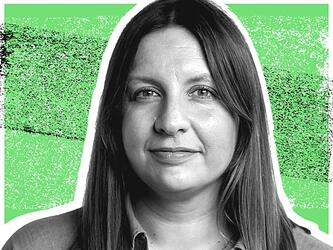Spreading the word: Tackling gender-based violence
In 1993, the United Nations published its Declaration on the Elimination of Violence against Women, recognising that it constituted a violation of their rights and fundamental freedoms. But violence against women remains a significant problem globally, and work continues to address the issue and achieve that aim of a gender-based violence-free world.
In Zambia, the BBC’s international development charity, BBC Media Action, has been working on a project to help reduce gender-based violence in the country’s Northern and Luapula provinces, where the problem is especially acute.
The charity set out to address the issue in 2019 through radio programming, backed by funding from the European Union and supported by the government of Zambia, World Vision, GIZ, Lifeline/Childline and Norwegian Church Aid.
The campaign, Natwampane – which means ‘coming together’ in Bemba – aimed to decrease gender-based violence in Northern and Luapula provinces. It involved 15 radio stations producing three weekly magazine programmes covering gender equality themes and signposting services provided by the state and charity partners for those affected. Stations broadcast the adverts multiple times a day to help spread the message.
Nick Chasimpha, research manager, Zambia, at BBC Media Action, says there had previously been successful interventions to reduce high rates of gender-based violence in other Zambian states. “It wasn’t surprising to see the Northern and Luapula regions had the highest rates, because there has been very little activity to address the problem,” he adds. “We are trying to address this with drama, public service announcements, and with our discussion programmes.”
To evaluate the success of the radio programming interventions, BBC Media Action conducted 1,003 face-to-face interviews with participants aged 15 to 49 across the Northern and Luapula provinces in April and May 2022. The research found that 84% of respondents had listened to either the radio discussions or advertisements, with 37% adding that they discussed the issues showcased in the programmes with friends and family.
Regular listeners reported women had more rights and could make more decisions – for example, choosing a spouse or deciding the number of children to have. Regular listeners, on average, ascribed more rights to women (mean of 6.4 out of nine ) than those who listened occasionally ( 6.2 ) or did not listen at all ( 5.4 ).
The same pattern appeared when questioned about nine statements on gender equality, including whether it is only right for a man to initiate sex or if women should be able to decide what they wear, with regular listeners ( 5.2 ) agreeing with more statements than occasional listeners ( 5.1 ) and non-listeners ( 4.7 ). Regular listeners were less likely to attempt to justify domestic violence ( 56%) than non-listeners ( 83%) and occasional listeners ( 69%).
Kaushiki Ghose, senior research manager at BBC Media Action, says: “We still have quite a few respondents saying, for instance, that they should not speak out when beaten, or that real men never cry. Our listeners show more positive and progressive attitudes, but these attitudes are very deeply ingrained in the culture.
“It isn’t just about ‘what I think I should do’, but also ‘what I think others are doing’, and ‘what others expect me to do’, and ‘are there sanctions attached if I don’t do something’. ‘If I defy cultural norms and start doing something differently, for instance, if I speak out when I am beaten, am I actually questioning the fabric of the family?’
“It’s these kinds of things that make gender norms hard to shift. We are seeing positive results among people who listen, compared with those who don’t listen, but norms are deep-seated and harder to shift.”
Perhaps the biggest implication of the research was that media has a strong role in tackling deeply ingrained issues within society. Cynthia Musonda, research and outreach officer, Zambia, at BBC Media Action, explains that reinforcing information about gender equality across different channels helped spread knowledge about the subject better across the community.
“People heard information on the radio. We also had listening groups in the different communities, and these groups were given Natwampane T-shirts,” she says. “So, when anyone in the community would see someone wearing that T-shirt, they would ask them for information.
“We also equipped our listening-group members with information on where to access services. This worked very well, because they could signpost people towards services in rural areas.”
Researchers will carry out further qualitative work to build on the findings and understand more about the underlying causes and reasons why people were still justifying abuse. In the meantime, the results demonstrate the importance of partnership work on important societal issues.
“This was a complex project – we had a number of partners on this project, both international and local,” says Chasimpha. “We had to conduct training on the ground, with religious leaders and marriage counsellors, because people get information from different sources. We needed to involve all different stakeholders to try to address this issue.
“We learned that media efforts, which seem to have yielded great results, must be complemented by activities and outreach on the ground – media alone is not enough.”
The research found:
69%
reported the programmes were useful to a great extent, and that the stories the programmes covered resonated with them
60%
of regular listeners, compared with 40% of non-listeners, said they would report an incident of domestic violence to the police
Breaking the cycle, tackling cultural norms
In the Northern and Luapula regions of Zambia, 21% of 15- to 19-year-old women and 34% of 20- to 24-year-old women had experienced physical violence after the age of 15 – in most cases, from current or former husbands and partners – according to the 2018 Zambian National Demographic Survey. The research also found that, in these two provinces, four in five women believed that husbands beating their wives is justified for reasons such as burning food or arguing with their husband.
This article was first published in the October 2023 issue of Impact

We hope you enjoyed this article.
Research Live is published by MRS.
The Market Research Society (MRS) exists to promote and protect the research sector, showcasing how research delivers impact for businesses and government.
Members of MRS enjoy many benefits including tailoured policy guidance, discounts on training and conferences, and access to member-only content.
For example, there's an archive of winning case studies from over a decade of MRS Awards.
Find out more about the benefits of joining MRS here.














0 Comments